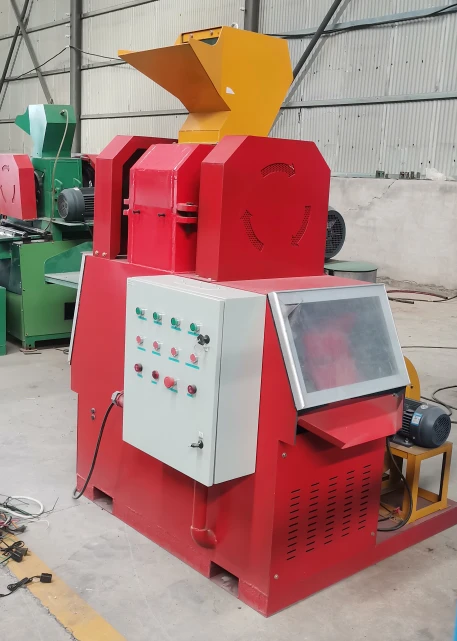

Pro . 09, 2024 18:34 Back to list
The Importance of Solid Waste Recycling Plants
In recent years, the issue of solid waste management has gained significant attention due to the increasing environmental challenges posed by waste accumulation. The increasing urbanization and industrialization have resulted in a surge in solid waste generation, necessitating effective strategies for waste management. Solid waste recycling plants have emerged as a vital solution to combat this pressing issue. These facilities not only help in reducing the amount of waste sent to landfills but also contribute to resource recovery, energy generation, and environmental sustainability.
A solid waste recycling plant is designed to process different types of waste materials, including plastics, paper, metals, and organic waste. The primary objective of such facilities is to collect, sort, and recycle materials that would otherwise contribute to the growing waste problem. By establishing efficient recycling plants, municipalities can significantly lower the volume of waste that ends up in landfills, thus prolonging landfill life and mitigating the associated environmental hazards.
One of the key benefits of solid waste recycling plants is their ability to conserve natural resources. For instance, recycling paper reduces the need for deforestation, as it minimizes the demand for new wood pulp. Similarly, metal recycling decreases the necessity for mining new ores, thereby preserving valuable minerals and lessening environmental degradation associated with mining activities. Furthermore, recycling plastics can significantly reduce the consumption of fossil fuels, as producing new plastics from recycled materials requires less energy than manufacturing from raw materials.
Another important aspect of recycling plants is their role in energy generation. Many modern recycling facilities implement advanced technologies that allow them to convert waste materials into energy through incineration or anaerobic digestion. By harnessing energy from waste, these plants not only contribute to reducing greenhouse gas emissions but also support the transition towards renewable energy sources. This process not only helps in managing waste but also provides an alternative source of energy, which is crucial in today’s energy-dependent world.

In addition, recycling plants create numerous job opportunities, promoting economic growth within communities. These facilities require a diverse workforce for operations, from sorting and processing to management and engineering. The establishment of recycling plants can provide jobs for local residents, thereby enhancing the local economy. Moreover, recycling initiatives can foster community involvement and awareness, encouraging residents to actively participate in waste segregation and recycling efforts.
Despite these benefits, solid waste recycling plants face several challenges. One major challenge is the contamination of recyclable materials. When non-recyclable items are mixed with recyclables, it can hinder the recycling process and result in higher operational costs. As such, public education and awareness campaigns are crucial to inform individuals about proper recycling practices and the importance of waste segregation. By fostering a culture of recycling and environmental responsibility, communities can significantly enhance the effectiveness of solid waste recycling plants.
Furthermore, investments in technology and infrastructure are essential for improving the efficiency of recycling operations. Advanced sorting technologies, such as artificial intelligence and robotic systems, can help streamline the recycling process and reduce labor costs. Governments and private sectors should collaborate to allocate resources towards research and development in recycling technologies to enhance the sustainability and effectiveness of waste management systems.
In conclusion, solid waste recycling plants play a pivotal role in addressing the ongoing challenges of waste management. They contribute to resource conservation, energy generation, and economic growth while minimizing the environmental impact of waste disposal. To maximize the benefits of these facilities, it is essential to raise public awareness about recycling practices, invest in advanced technologies, and promote community involvement. By embracing sustainable waste management practices, we can pave the way for a cleaner, greener future.
Latest news
Troubleshooting Common Eddy Separator Problems
NewsJul.04,2025
The Role of Metal Recycling Plants in Circular Economy
NewsJul.04,2025
The Impact of Recycling Line Pickers on Waste Management Costs
NewsJul.04,2025
Safety Features Every Metal Shredder Should Have
NewsJul.04,2025
How Industrial Shredders Improve Waste Management Systems
NewsJul.04,2025
How Cable Granulators Contribute to Sustainable Recycling
NewsJul.04,2025